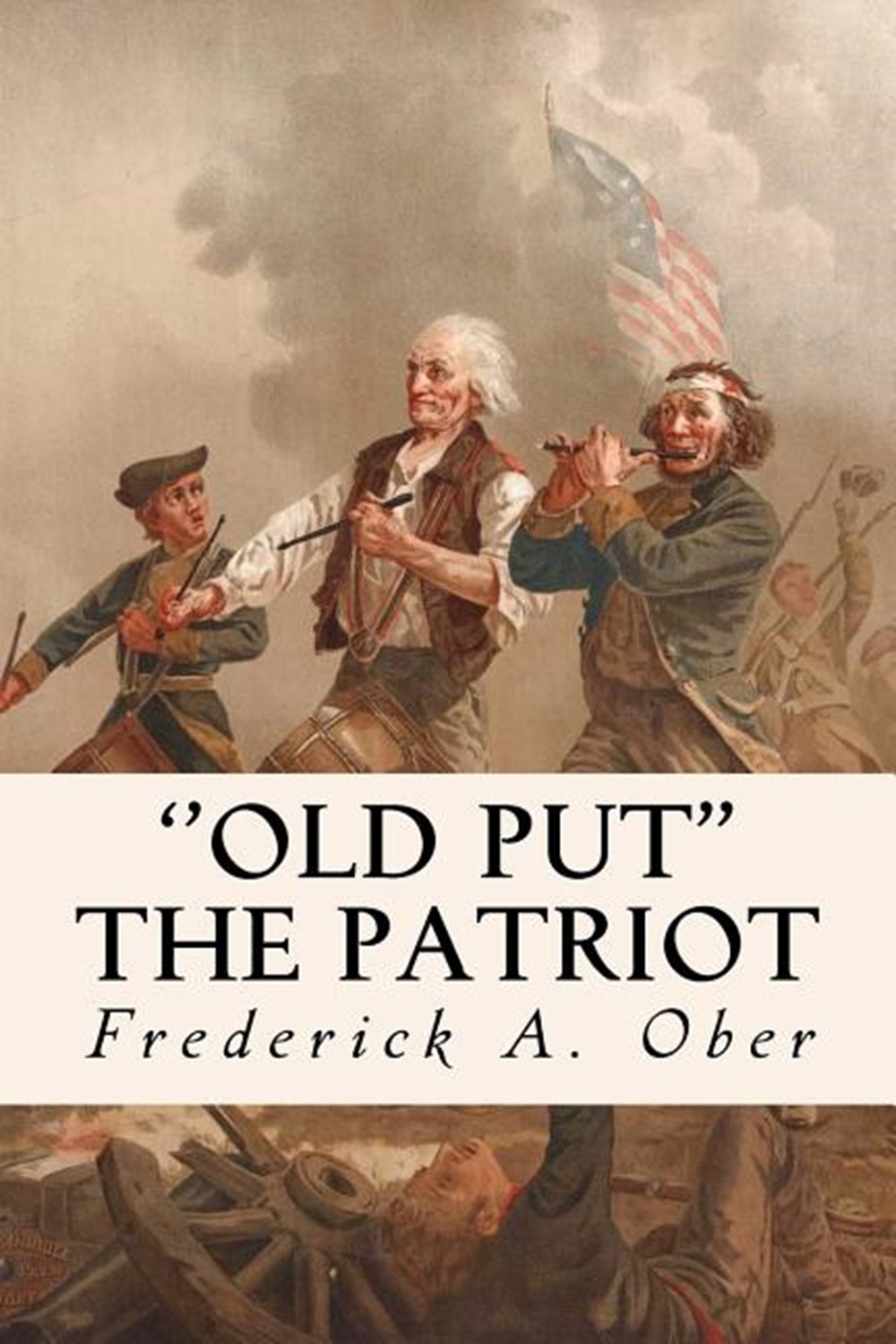
''Old Put'' The Patriot
''Old Put'' The Patriot is is an American history biography of Israel Putnam who was born on a farm, and died on a farm, yet who achieved a world-wide fame through his military exploits. It has been told many times, it will be told for centuries yet to come; for the world loves a man of high emprise, and such was Israel Putnam, the hero of this story.
| Quantity | Price | Discount |
|---|---|---|
| List Price | $6.85 |
Non-returnable discount pricing
$6.85
Book Information
| Publisher: | Createspace Independent Publishing Platform |
|---|---|
| Publish Date: | 02/06/2016 |
| Pages: | 120 |
| ISBN-13: | 9781523909223 |
| ISBN-10: | 1523909226 |
| Language: | English |
Full Description
''Old Put'' The Patriot is is an American history biography of Israel Putnam who was born on a farm, and died on a farm, yet who achieved a world-wide fame through his military exploits. It has been told many times, it will be told for centuries yet to come; for the world loves a man of high emprise, and such was Israel Putnam, the hero of this story. Israel Putnam (January 7, 1718 - May 29, 1790) was an American army general officer, popularly known as Old Put, who fought with distinction at the Battle of Bunker Hill (1775) during the American Revolutionary War (1775-1783). His courage and fighting spirit became known far beyond Connecticut's borders through the circulation of folk legends in the American colonies and states celebrating his exploits. He had previously served notably as an officer with Rogers' Rangers during the French and Indian War, when he was captured by Mohawk warriors. He was saved from the ritual burning given to enemies by intervention of a French officer, with whom the Mohawk were allied. By the eve of the Revolution, Putnam had become a relatively prosperous farmer and tavern keeper, with more than a local reputation for his previous exploits. On April 20, 1775, while plowing one of his fields with his son, he received news of the Battle of Lexington and Concord that started the war the day before. He literally "came off the plow," leaving it in the field and riding 100 miles (160 km) in eight hours, reaching Cambridge the next day and offering his services to the patriot cause. Putnam was named major general, making him second in rank to General Artemas Ward in the Army of Observation, which preceded the founding of the Continental Army. He was one of the primary figures at the Battle of Bunker Hill, both in its planning and on the battlefield. During that battle, Putnam may have ordered William Prescott to tell his troops, "Don't fire until you see the whites of their eyes." (It is debated exactly who said these words first; they are attributed to a number of officers.) This command has since become one of the American Revolution's notable quotations. It was given to make the best use of the low ammunition stocks that the troops had. In the planning for the Battle of Bunker Hill Putnam was likely the one who argued in favor of also fortifying the adjacent hill, which later became known as "Breed's Hill."[25][26] This hill was closer to Boston, and from the hill cannons could fire on the British forces in Boston, forcing them to come out and attack the hill.[27] The British soldiers were mowed down as they marched toward the American fortifications. However, the Americans ran out of powder, and were eventually forced to retreat. American casualties were 449, while British casualties were 1054. By the standard of the day the Americans lost, since they gave up the ground. However, Continental Army Brigadier General Nathaniel Greene wrote to his brother that "I wish we could sell them another hill, at the same price." Years after the battle, and after Putnam was dead, he was accused by Henry Dearborn of failing to supply reinforcements and even of cowardice during the battle. People were shocked by the rancor of the attack, and this prompted a forceful response from defenders of Putnam, including such notables as John and Abigail Adams. Historian Harold Murdock wrote that Dearborn's account "abounds in absurd misstatements and amazing flights of imagination." The Dearborn attack received considerable attention because at the time he was in the middle of considerable controversy himself. He had been relieved of one of the top commands in the War of 1812 due to his mistakes. He had also been nominated to serve as Secretary of War by President Monroe, but was rejected by the United States Senate (which was the first time that the Senate had voted against confirming a presidential cabinet choice)


